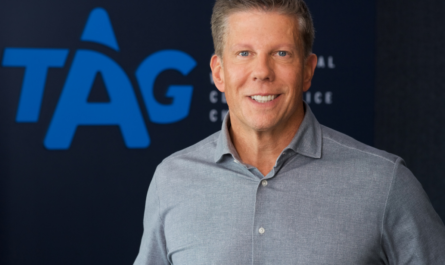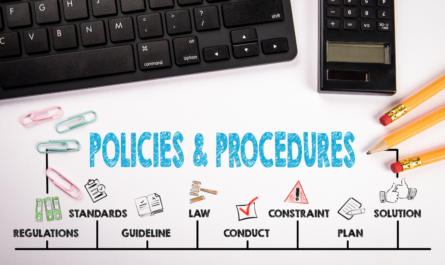How to make the right decision for your dental organization.
By Emmet Scott, Partner, DEO
Streamlining systems and processes for optimal efficiency, productivity, and performance is essential to running and growing a thriving dental practice. Deciding the most effective strategies to create efficiencies can be a difficult task.
One of the first avenues many dental groups explore as they start to scale in how to improve efficiency is whether or not to centralize (and which functions to centralize). There are benefits and costs to explore for centralization and decentralization. And since no two dental practices are alike, either may be right for your business given your current circumstances and business goals.
Centralizing certain activities within your dental practices, if done correctly, can improve efficiency throughout your organization. However, there are reasons not to centralize as well. Following are arguments for both to consider for your dental practice.
The argument for centralization
From an operations perspective, you may have individuals in each dental practice doing an activity that is essential but does not require a full-time job position. Then the question is “How do I maximize this staff member’s time, energy, and expertise around certain activities such as answering the phone or completing billing work?”
To illustrate, consider the scenario where you consolidate the responsibility of answering phones at the front desk to a single person. This means that all incoming calls from different offices will be routed to this individual. By doing so, you can fully utilize their skills and capabilities. This arrangement does reveal one key limitation to centralization: technology. Alternately, it also highlights a core benefit of centralization: the opportunity to leverage expertise across multiple practices through a single staff member.
In the early stages, centralization primarily focuses on consolidating the movement of data, information, or data access, rather than physically relocating people to a central building. To centralize your team, you can establish a system where all data flows to a single group of receptionists at one practice, who would handle tasks for all the other practices. Even though these receptionists are still located within that one practice, they would function as a centralized hub.
Once your practice is centralized, you can begin to make some investments into specific metrics. How many phone calls are getting answered or not answered? What percentage of patients are getting called back? How many bills should someone be able to post? How many appointments are scheduled in a certain period of time? You can start measuring these activities for efficiency.
Centralization offers the advantage of bringing together various areas of expertise. For instance, you can gather the revenue cycle management billing team or customer service representatives in a shared workspace. This setup enables a smooth transition so that when turnover happens and new staff members join, experienced staff within the same location are available to train them.
The argument for decentralization
A decentralized practice is a typical dental practice where a staff member is at a reception answering phone calls, a staff member is covering human resources, and another staff member is handling billing. For example, in a decentralized dental organization with five practices, you would have different staff handling these functions at each practice.
For some practices, decentralization makes much more sense than centralizing everything. If the technology isn’t available or if it’s wearing on the company culture, it would be more beneficial to stay decentralized. One problem I have seen frequently is when a dental organization has centralized a role, but that role really served two purposes in the practice. They might have been handling billing while also covering X-rays or some other activity. When such a role is centralized, it does not result in increased efficiency because the organization needs to hire someone else to fill the void. Then, centralization may enhance capabilities, but it does not lead to reduced costs as initially anticipated.
Some practices may stay decentralized because it’s just easier and more efficient to operate that way. Centralization may require you to build out a new facility for your centralized team, which will also require a manager. Leadership might say something along the lines of, “We’ve already got office managers in place at each practice. The practices are different enough that centralization isn’t going to give us more leverage, or the staff covering activities required by their primary job role are also fulfilling additional activities outside of that role. If we centralized, we would still have to hire staff to handle those activities.”
Additionally, you might have purchased a group of practices that bill totally different insurances or collect money differently. Implementing centralization necessitates a certain degree of standardization that would be challenging to uphold among these diverse practices. Consequently, you would not be able to achieve any efficiency gains by centralizing any of these roles.
There is no one right decision for whether to centralize or decentralize certain activities in your dental practice. While centralization can lead to improved efficiency and the leveraging of expertise, it may not always result in reduced costs or be feasible in practices with diverse operations. Ultimately, each dental practice should carefully evaluate its unique circumstances and goals to determine if centralization is the best course of action.
How the DEO can help
One of the major advantages afforded to members of the Dentist Entrepreneur Organization (DEO) is access to a large network of dental leaders who have centralized their practices in many different circumstances, like high volume in a Medicaid environment or high level of customer care in a geriatric environment. Alternately, there are DEO members who chose to keep a decentralized model for their practices. There are also members who are doing a mix of both, centralizing certain functions like billing but staying decentralized for others. The DEO member network is an invaluable resource for determining if, when, and what to centralize. Additionally, the DEO has a number of training and resources weighing the pros and cons and offering strategies for centralization available in our exclusive online portal available to members. The nuance of centralization is a common conversation in our Mastermind Sessions including what technologies are available and which ones work best for specific centralization scenarios. Find out how you can become a DEO Member by visiting deodentalgroup.com.






